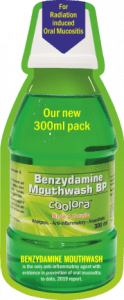Menu

Date: 18th Jan. 2018
Tooth loss can occur at any age, however, it doesn’t that mean you have to lose your beautiful smile. Dentures make it possible for those who have lost some or all their natural teeth to lead a comfortable life. However, even dentures can come with their own set of struggles. Sometimes, dentures can slip in the mouth, even when they fit well. It may also take time for you to get used to eating with false teeth.
As a result, denture adhesives are prescribed to improve the fit, bite force, and offer a sense of security. They can also help in keeping food particles from getting stuck under the dentures. Denture adhesives provide a strong hold throughout the day that gives you confidence while consuming tougher foods or dining out. While useful, if you feel that your dentures feel fine, denture adhesives are unnecessary.
Denture adhesives are non-toxic, water-soluble products that are applied on the dentures. They enhance the grip of the dentures to reduce movement and slippage while eating, talking, sneezing, and laughing. They can be used for both full and partial dentures, and come in different forms like pastes and powders.
If a denture is constructed properly and has the right fit, you don’t need denture adhesives to keep them in place. Here are some reasons why your dentist may prescribe denture adhesives:
– You are new to dentures and need time to get used to them.
– The ridge of your jaw is too flat, thin, or irregular. Hence, it cannot provide enough support to hold the dentures well.
– You suffer from dry mouth (can be due to old age, systemic diseases, or medication). Dentures need saliva to provide an adhesive effect. So, lack of saliva production warrants denture adhesive use for stability.
– You suffer from neuromuscular adaptation problems (e.g. stroke patients).
– You’re looking for extra security, comfort, and peace of mind while using dentures.
Below are the steps to use denture adhesive pastes like ICPA’s Fixon Cream:
1. Clean your dentures before applying the cream. Make sure that your dentures are wet before applying the adhesive.
2. Apply 3 small strips of Fixon Cream near the borders on the sides and centre of the denture as shown in the picture below.
3. Once applied, place the denture inside the mouth and gently apply some pressure to fix them.
4. Reapply Fixon Cream once the adhesive effect seems to be wearing off. Make sure that you clean the denture thoroughly with a denture brush before reapplying more cream.
To use denture adhesive powers like Fixon Powder, follow the steps below:
1. Clean and slightly wet your dentures.
2. Sprinkle Fixon Powder on the surface of the entire denture.
3. Shake off any excess powder.
4. Place the denture inside your mouth and gently apply pressure to fix them in position.
5. Reapply Fixon Powder once the adhesive effect seems to be wearing off. Make sure to clean the dentures before reapplying the powder.
While denture adhesives are useful for some patients, there are some things you must keep in mind:
– Since all denture adhesives are different, make sure that you read the application instructions on the product packaging.
– Do not use denture adhesives without consulting your dentist first.
– Avoid using more adhesive than required. Use the minimum amount required to achieve the desired fit. If the adhesive oozes out, it means you’re using too much.
– Keep a track of your adhesive use by marking the date you start a new tube. If you notice that you’re using more adhesive to maintain a good fit, then it’s possible that your dentures don’t fit you properly anymore.
– If you use denture adhesives to compromise for an ill-fitting denture, you could damage your mouth’s hard and soft tissues. Moreover, this may also result in bone loss.
– The signs of ill-fitting dentures are:
1. Constant looseness
2. Discomfort
3. Development of sores
– Visit your dentist for regular check-ups so he or she can address any problems with your dentures or oral health.
There are some circumstances when your dentist will advise against using a denture adhesive. Here are some of these conditions:
– If you are allergic to any of the ingredients used to make denture adhesives.
– When you cannot maintain regular oral hygiene.
– If you have been using adhesives for a long time.
– If your dentures don’t fit you properly, then your dentures need to be fixed or replaced.
– You have sores or open cuts in your mouth.
– It has been a while since your dentist has evaluated your dentures.
Denture adhesives can greatly enhance the function of your dentures and increase your comfort, but it’s important that they are used only when needed. Remember to handle your dentures with care, remove them every night, and clean them regularly. Well-maintained dentures will last longer and prevent oral problems. Make sure that you consult your dentist before using a denture adhesive or any new oral product.
References:


| PRODUCTS | QTY | PRICE | VALUE in INR |
|---|
| PRODUCTS | QTY | PRICE | VALUE in INR |
|---|